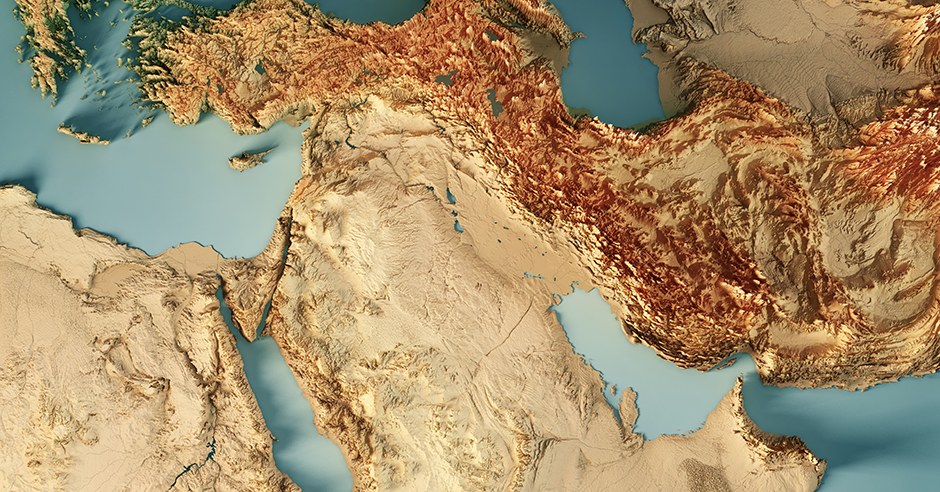Author: Shahin Modarres.
As the light at the end of the tunnel of revitalizing the JCPOA grows weaker the tension between Iran and the international community rises fiercely. Tension can be analyzed on two levels, regional level, and international level. On a regional level whilst Iran's regional competitors express their concerns regarding Iran's nuclear program, Israel has been applying a drastically different approach, a completely physical approach that dances on the edge of initiating a direct regional conflict. For the past month a notable number of high-ranking officers and scientists within the IRGC and Ministry of defense have been targeted and assassinated in the streets of Iran, almost all targets played an important role in the country's nuclear and missile program. Even though the Israeli officials never officially accepted the responsibility but Israel remains to be the main guess behind the calls. At the same time reports have been registered regarding threats against Israeli citizens in Turkey and Thailand. Earlier Israel's minister of foreign affairs asked all citizens to evacuate Istanbul immediately because of a series of imminent threats against their lives.
On another proxy level, the shelling of Iranian infrastructures in Syria by the Israeli Air Force has been intensified. Drones trying to reach Israeli territories through Iraq's airspace have been shot and there have been reports of drone attacks on safe sites of Israel's intelligence operations according to Iranian authorities. Constant cyber war has been going on as well, every now and then, Iranian or Israeli hackers have been claiming victory by accessing infrastructures or personal data from the rival. A full encounter between the countries is now more threatening than ever. That is the main reason why both actors are reinforcing their teams in anticipation.

One of Iran's main bargaining leverages has been its regional influence. A military influent formed of mostly Shiite militant groups in Iraq, Syria, Lebanon, and Yemen running alongside vast support of Sunni groups such as Hamas for years gave Iran an upper hand to proceed with its regional proxy wars but what has changed? Iran's influence in the region has been limited mainly because of two reasons, a technological shift in the defense paradigm and a realistically Machiavellian perception of diplomacy. The aerial defense system known as the "Iron Dome" by Israel has definitely been a game-changer redefining traditional defensive methods through advanced approaches to countering missile attacks. On the diplomatic level, the "Abraham Accords" were none other than a realist perception of "my enemy's enemy can be my friend!" The growing angle of difference between Iran and Arab countries of the Persian Gulf and Saudi Arabia itself lead the tension between Israel and Arab countries to decrease gradually. Now a new form of an alliance is being formed between them. An alliance that some interpret as a Middle Eastern form of NATO; is METO.
A few days ago Israel's minister of defense called for a new alliance between Israel and its Arab partners against Iran led by the United States. It appears that the defensive circle against Iran is getting tighter but at the same time Iran has decided to deactivate the surveillance set by the IAEA within its nuclear facilities. President Biden's trip to the Middle East will happen soon during which he will visit Israel and Saudi Arabia. Against all odds, the Biden administration appears to be considering its foreign policy legacy none other than peacebuilding between Israel and Saudi Arabia. Hence, his trips will play a crucial role that may affect and form Middle East's near future on different levels.
A Middle Eastern Treaty Organization(METO) on a dynamic scale may only live with the blessing of the United States. But on a regional level, actors are consciously trying to build an independent alliance as well. Almost each and every member of the new alliance at some point during the past two decades has been unhappy regarding US policies in the region hence traces of a collective will to have independent strong regional alliances are quite clear amongst actors. There is already talk regarding Israel sharing parts of its "Iron Dome" technology with Arab partners. Whilst wealthy Arab partners can generously invest in the Israeli technological and scientific R&D, all allies may benefit from the results.
On the other end, Iran has shown a Russo-Oriental turn towards developing military and security cooperation with China and Russia. Also, there has been a fast development of the county's Aerospatiale program, particularly in regards to ballistic missiles program, drones, and satellites. Even though the Iranian economy is facing its most fragile state expenses regarding the doctrines of "Defense and Influence" have indeed increased.
To anticipate the outcome of this equation we all need to think in a Machiavellian context, to simply interpret the equation based on each country's national interest. Will the US join the coalition to form METO? Will Russia and China support their supposed ally if Iran's nuclear program once again ends up in the United Nations Security Council? And eventually, the final unfortunate question is, will we face another devastating war in the Middle East?
No comments.